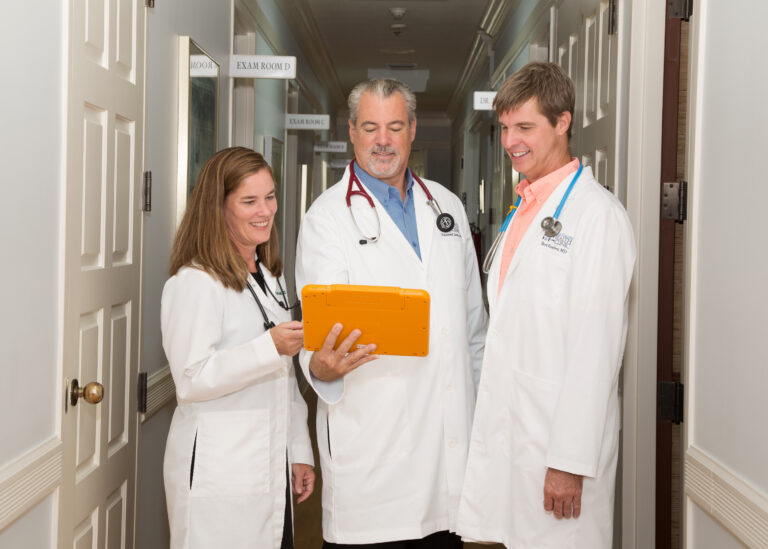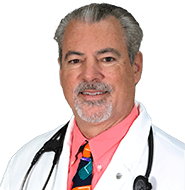
Infectious Diseases Expert Offers Solid Advice During Back to Boca Virtual Grande Rounds

On September 23, Dr.Paul Auwaerter, MBA, MD, clinical director of the Division of Infectious Diseases at Johns Hopkins University School of Medicine, spoke to an audience of more than 300 people to discuss “Back to Boca,” the first in a four-part, free webinar series to provide our community with facts about COVID-19, including recommendations for safe travel and safe living on our beautiful island this season. Dr. Auwaerter, a world-renowned leader in his field, provided the latest knowledge on transmission of COVID-19, the course of the illness, updates on testing and travel considerations. This webinar is archived and can be viewed at https://vimeo.com/461855519/4876455a55.
Safe Travels
During the presentation last Wednesday there were many questions from viewers regarding the safest mode of travel back to Boca Grande. According to the Centers for Disease Control and Prevention (CDC), if everyone on an airplane is socially distanced and wearing masks on a single flight, the risk of COVID-19 exposure is actually higher in the airport terminal coming and going, than on the flight, due to the air filtering processes currently used by the airlines. The longer your flight, the higher your risk. In airport terminals while awaiting a flight, avoid the bathrooms and restaurants, and get in and out of the airport without unnecessary delays. Commercial airline travel risk is not as high as many fear, and interestingly appears to be safer than eating indoors at a restaurant.
Voluntary Quarantine Upon Return
Once you get back to Boca Grande, to protect your friends and neighbors, you should quarantine for 14 days to be sure you are not unknowingly spreading COVID-19 which you may have contracted while traveling. Do not travel if you or someone in your party is sick. If someone is sick with COVID-19 in a household, the data have shown about a 20 percent chance of someone else in that same household catching the virus. Spouses and partners are the highest risk, especially if they share a bed and bathroom. If families all wear masks when someone is sick and confine the ill person to their own bed and bathroom, transmission rates are less. Age continues to be the biggest risk factor for death. Continue to follow the CDC for COVID-19 updates.
Understanding the Tests
COVID-19 testing can be confusing. Nose swabs look for ribonucleic acid, or RNA, (the genetic material from the virus) but this test can produce false negatives about 20 percent of the time. This process is called molecular testing. False negatives often occur if we test too soon after exposure and there is not enough virus being created yet to be detected with the test. Not everyone needs a test. Results can take up to a week, and a negative test does not mean you do not have the virus. Test results seem to be most accurate about six to eight days after exposure. This is why some patients may need a second test. Poor quality samples from an uncomfortable process is another reason for false negatives. Close contacts usually need testing (if you were within six feet for more than 15 minutes of someone who tests positive, even if wearing masks). Contact your physician to get guidance, because it can be difficult to navigate as testing and protocols continue to evolve.
Antibody testing has its issues as well, including the fact it can take four to six weeks for levels to be high enough to be detected. Also, there are four coronaviruses that cause about 20 percent of common colds each year and could cause a false positive and give you a false sense of protection.
COVID-19 Treatments
Treatments for COVID-19 include Remdesivir, which is an intravenous medication that blocks virus replication, and seems to work best for patients who are sick enough to need oxygen. Dexamethasone (an intravenous steroid) has been shown to be helpful for people who are sicker, needing oxygen and intensive care. Convalescent serum with high levels of antibodies also seems to help patients if given early.
There is no “magic bullet” to treat COVID-19. The United States has invested heavily in creating a vaccine and at the current rate of development, a successful vaccine will likely be available after the beginning of 2021. As hopeful as this sounds, a second dose of the vaccine will most likely be needed three months after the initial dose to achieve adequate immunity for COVID-19. That means effective levels of vaccination will likely not begin to develop in our population at least until spring or summer of 2021.
Take it Outside
That being said, weather permitting, having Thanksgiving outdoors this year might be a healthier option and perhaps a new tradition! Doing activities outside with family and friends whenever possible this holiday season will reduce your risk of becoming ill. Statistically, only 45 percent of people get the flu shot every year. If you are healthy, get the flu vaccine to keep not only you healthy, but also so you do not give it to someone who is at higher risk, and to reduce the risk of co-infections with COVID-19 like we saw happen in New York City and other hot spots.
This season more than ever, be safe and remember we are all making these changes in our habits to look after one another to help make this a happy and healthy season for everyone.
More Recent Healthcare News

Every year we celebrate Doctor’s Day and Nurses Week, but there’s one more recognition event that’s just as important. Administrative Professionals Day is April 24th this year and I want to be sure to bring special attention to three incredibly special members of the Boca Grande Health Clinic family. Jonna Foos, Director of Operations Jonna […]

April, the birth month of James Parkinson, is Parkinson’s Disease Awareness Month. Parkinson’s is a degenerative syndrome that results in the gradual loss of brain circuitry involved in movement, thinking and behavior. According to the National Institutes of Health (NIH), the first clear medical description of Parkinson’s Disease as a neurological condition was written in […]

March 30th marks a special day on our calendar – Doctor’s Day! It’s a time to honor those who dedicate their lives to caring for us. At the Boca Grande Health Clinic, it’s the extraordinary team of board-certified physicians – Dr. Raymond A. James, our Medical Director; Dr. Bret Kueber, the Assistant Medical Director; and […]

Ask a Doc: Kicking Colon Cancer in the Butt
March 22, 2024According to the American Cancer Society, the lifetime risk of developing colorectal cancer is about 1 in 23 for men and 1 in 25 for women. The death rate from colorectal cancer has been dropping in older adults for several decades. Unfortunately, colorectal cancers now rank as the leading cause of cancer death in men […]

